Basel, Switzerland (UroToday.com) Dr. Christopher Logothetis opened the regional care (demographic and environmental factors) session at the Advanced Prostate Cancer Consensus Conference the (APCCC) 2019 meeting. His presentation focused on ethnicity and prognosis of prostate cancer.
Prostate cancer is an emergent international challenge. It is interesting to explore whether there are international differences in reported incidences and mortality of prostate cancer. Figure 1 and 2 demonstrate the age-standardized incidence and mortality of prostate cancer, respectively, worldwide. Figure 3 and 4 demonstrate the incidence and mortality of the most common cancers in men worldwide, and figure 5 shows the incidence and mortality rates of prostate cancer in different regions in the world.
Figure 1 – Age-standardized worldwide incidence of prostate cancer:
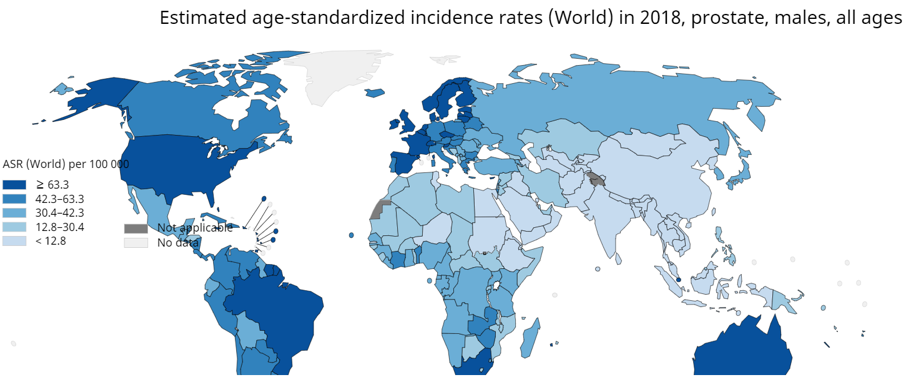
Figure 2 – Age-standardized worldwide mortality of prostate cancer
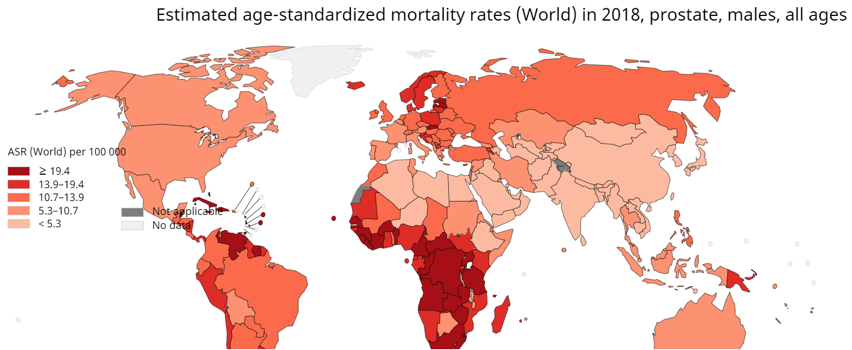
Figure 3 – The incidence of the most common cancers in men worldwide:
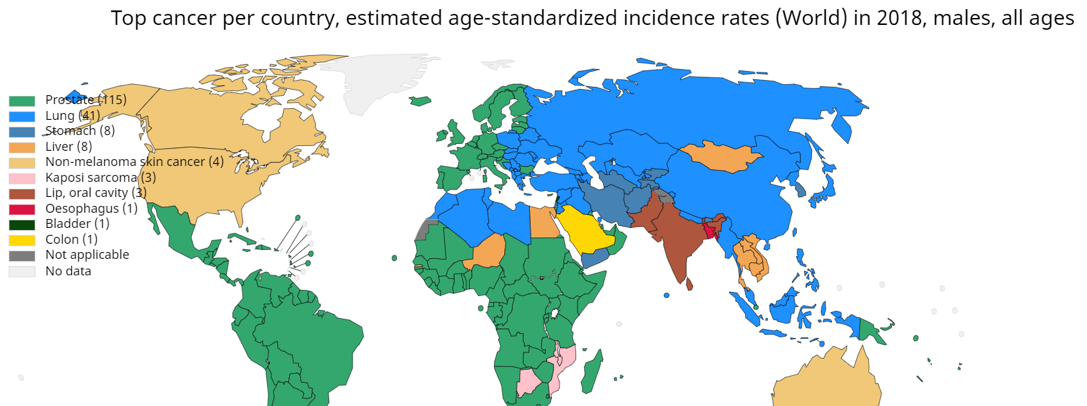
Figure 4 -The most common causes of cancer death in men worldwide:
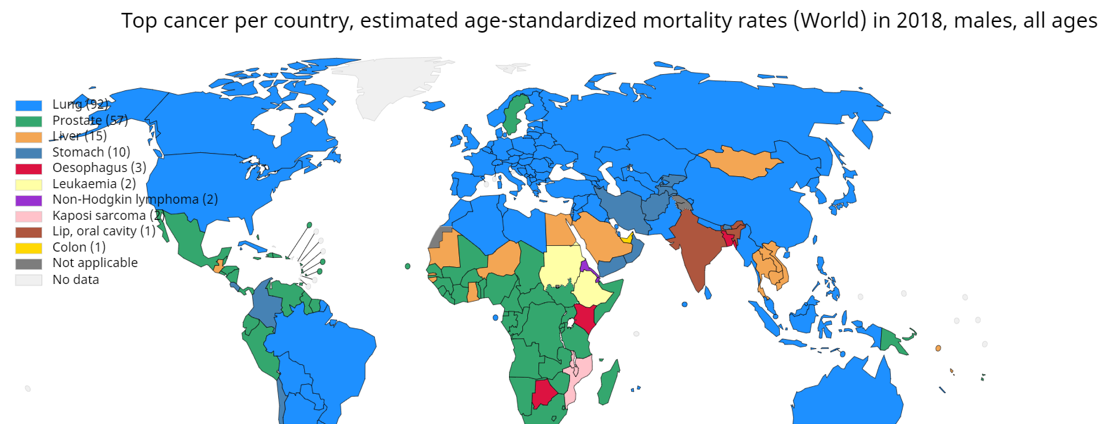
Figure 5:

Clearly, there is a significant difference in the incidence and mortality of prostate cancer worldwide. There are greater differences in the incidence rates than in the mortality rates by geography. There are also observed trends specific to the incidence and mortality across geography or race within geographic areas, suggesting the presence of ascertainment bias, which could be contributing to these findings.
Next, Dr. Logothetis asked whether there are geographically detected prostate cancer that is biologically distinct. In the New-England Journal of Medicine paper by Pritchard et al.,1 the various pathogenic germline mutations in prostate cancer were described (Figure 6). Most men analyzed in this study were Caucasian, and more work is required to see if different ethnicities have different mutation profiles.
There have been several studies that have analyzed whether there are potentially deleterious germline and somatic mutations that are specific for each ethnicity, as shown in table 1. However, it is still far from being entirely clear.
Figure 6 – Distribution of presumed pathogenic germline mutations in prostate cancer
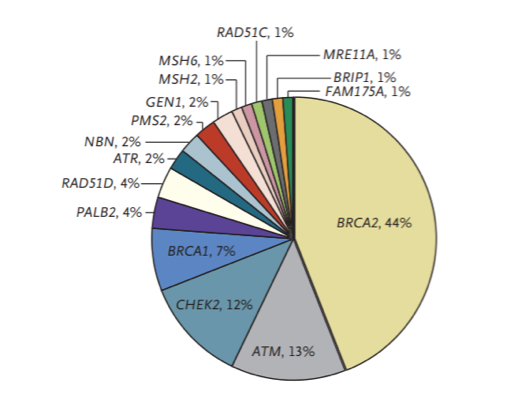
Adapted from Pritchard C.C et al. NEJM 2016
Table 1- Studies assessing whether there are ethnicity-specific deleterious germline and somatic mutations: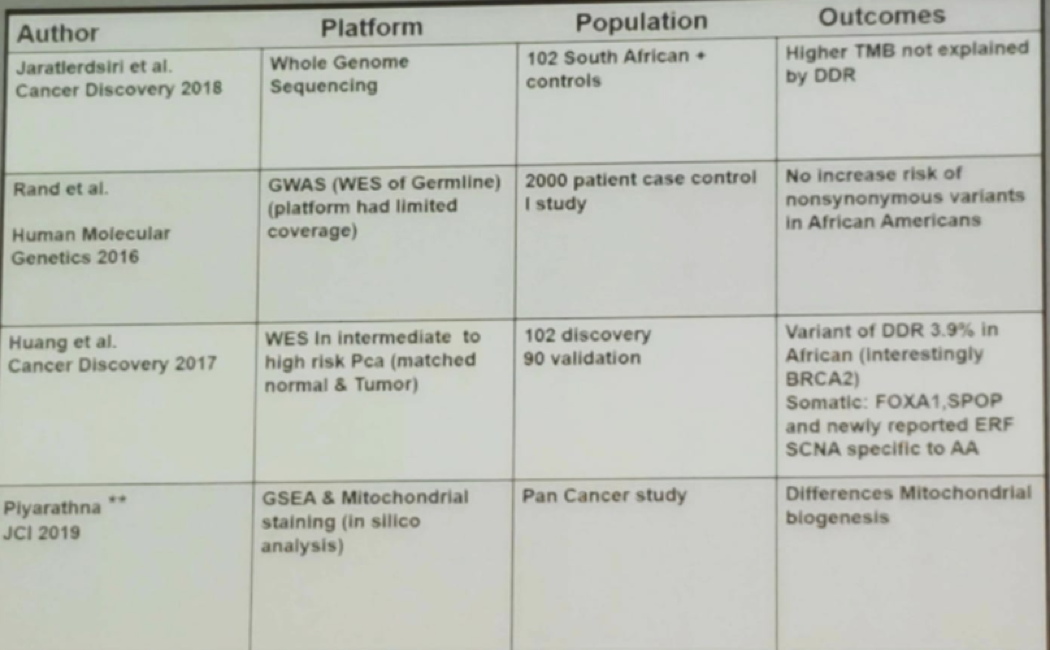
The mortality rate by region appear to be distinct, and the frequency of deleterious alteration differ by ethnicity in some studies, but the etiology is still uncertain. At this point in time, therapy and surveillance should be informed by stage and grade, and by genetic knowledge, but in an ethnicity agnostic manner.
Dr. Logothetis concluded his talk by stating some future directions that need to be further explored. The role of the relationship between the gene and the environment and its effect on prostate cancer outcomes must be understood. The “exo-environment” must be studied. This includes delving into diet, physical activity and the microbiome, potentially harboring significant ramifications for disease development and progression. Lastly, we need to control health care and standardize our reporting patterns.
Presented by: Christopher J. Logothetis, MD Anderson Cancer Center, USA
Written by: Hanan Goldberg, MD, Urology Department, SUNY Upstate Medical University, Syracuse, New-York, USA @GoldbergHanan at the 2019 Advanced Prostate Cancer Consensus Conference (APCCC) #APCCC19, Aug 29 – 31, 2019 in Basel, Switzerland
Reference:
